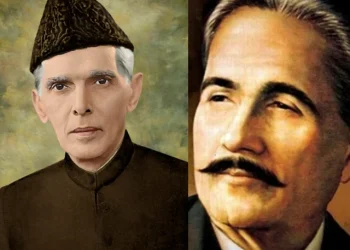Navigating Ramazan away from Pakistan comes with challenges
“Not even coffee?”
These are the awed words of an agnostic Caucasian teacher in New Jersey who first learns from me what fasting from dawn to dusk entails.
Thus with this imagery having sparked a fresh wave of longing in caffeine hounds, it is time to take a step back and reflect on the Ramazan experience in a non Muslim country. As the moon wanes away steadily towards the launching pad to Eid, does it really make any difference whether you observe this month outside Pakistan?
A different world
You get no prizes for guessing that the answer is “yes”. For a start, it would occur to no one in Pakistan (or, for that matter, the Middle East or the Gulf), to query, “Not even coffee?”
Local supermarkets may have a larger stock of dates than usual, but that is where local culture and Muslim culture part ways. Whether you are fasting or not, office hours continue to run as regimentally as they do throughout the rest of the year. If you have been resourceful enough to land a working-from-home position, you can block your diary with something that sounds vaguely vital and escape the rigmarole of Teams meeting, which have rendered your throat hoarse and done no favours at all to your thumping caffeine withdrawal headache. Having cleverly blocked your diary, you can escape for a well-timed secret thirty-minute nap.
Fasting school children, on the other hand, enjoy no such luxury. Far from being able to pencil in secret naps, they are expected to remain alert and engaged throughout the mind-numbing tedium of geography lessons, regardless of how late they may have had to revise for impending GCSEs after coming back from the mosque the night before.
Things are equally grim in PE, where they have to somehow continue to jog at a steady pace alongside their non-fasting peers.
“We had to run, like, a bunch of laps, and then the teacher went, ‘If you are not fasting, go and have a drink, and if you are fasting, I guess you just have to stay here and not have a drink’,” says Anaya, a thirteen-year-old student.
Because she attends a diverse school with a robust balance of Muslim and non-Muslim cohorts, Anaya has no qualms about fasting during the school day, despite being amongst peers who have lunch during break or water after running laps. Far from being put off by fed and watered classmates, Anaya maintains she wants to keep up with her Muslim friends, despite her parents suggesting she take it easy on PE days.
“I don’t want to be the only one of us not fasting, you know?” she says.
School and work may continue without the truncated working hours on offer in Pakistan, but when you draw the lens a little closer to home, things remain eerily similar – especially for the women who have imported extended family (or rather, extended in-laws) alongside themselves.
Kitchen duties galore
The moment that sun disappears from the sky the floodgates open for the woman tasked with all things food – especially if she lives with a caffeine hound, even if she herself cares little for either tea or coffee.
This is something that transcends borders, hemispheres, and possibly all celestial objects. Wherever you find yourself within the confines of our solar system, few Pakistani men will be foolish enough to allocate the drudgery of the kitchen to themselves when they have a woman nearby to do it for them. Even if Elon Musk finds a Muslim couple willing to relocate to Mars, it will still be the man sitting waiting to be served his usual quota of tea from the woman who is probably wondering why she didn’t let him go alone.










 American Dollar Exchange Rate
American Dollar Exchange Rate